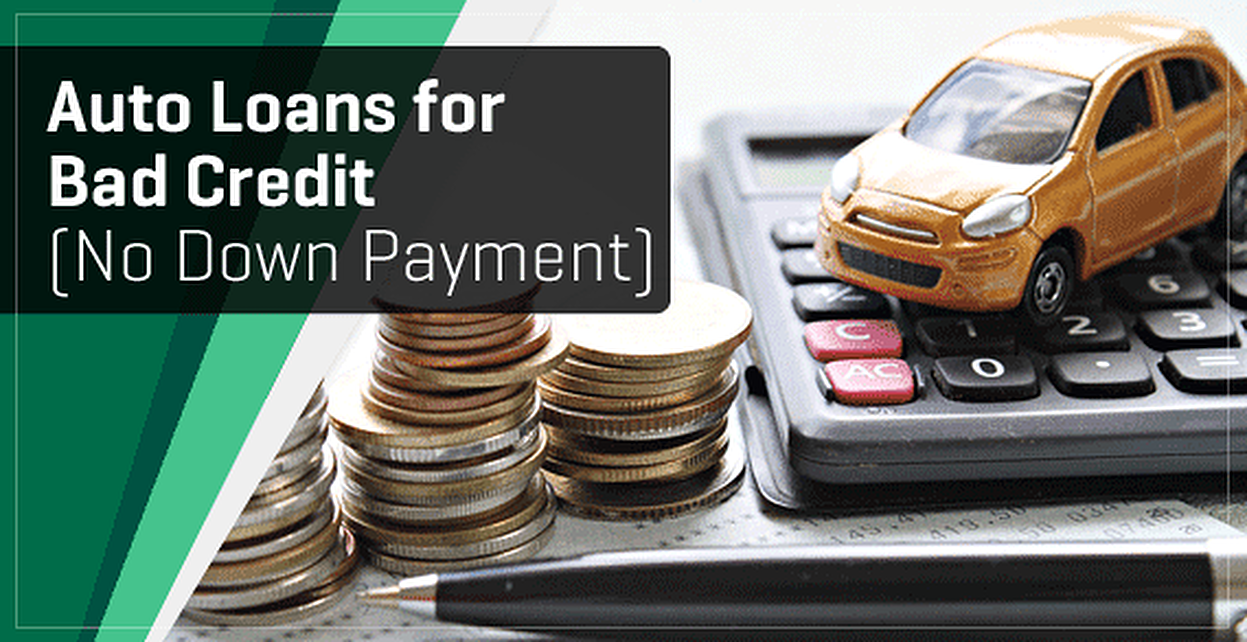So, you’ve found yourself in Windsor with bad credit and the need for a car loan. Don’t panic just yet! This article is here to give you some essential tips and guidance on how to secure a car loan despite having bad credit. Whether you’re a first-time buyer or have experienced financial difficulties in the past, we’ll provide you with the knowledge and resources you need to navigate the challenging world of car loans in Windsor. With a bit of determination and the right approach, you’ll be hitting the open road in no time.
Securing Car Loans in Windsor with Bad Credit
If you’re living in Windsor and have bad credit, finding a car loan might seem like an impossible task. However, there are actually several options available to you. In this article, we’ll explore everything you need to know about securing car loans in Windsor with bad credit. We’ll cover topics such as understanding bad credit car loans, factors that affect these types of loans, how to prepare for the loan application, finding lenders who accept bad credit, comparing loan offers, improving your chances of approval, providing adequate documentation, negotiating loan terms, avoiding predatory lenders, and rebuilding your credit score.
Understanding Bad Credit Car Loans
Bad credit car loans, also known as subprime auto loans, are specifically designed for individuals with poor credit scores. These loans cater to individuals who may have faced financial difficulties in the past, such as bankruptcy or missed payments, and are now looking to secure a car loan. However, it’s important to understand that bad credit car loans come with certain conditions and considerations.
One of the key aspects of bad credit car loans is the high interest rates. Lenders often charge higher interest rates to compensate for the added risk of lending to individuals with bad credit. This means that you may end up paying more in interest over the life of the loan compared to someone with good credit.
Another factor to consider is the shorter loan terms. Lenders may offer shorter repayment periods for bad credit car loans, which can result in higher monthly payments. It’s essential to carefully analyze your budget and ensure that you can comfortably afford the monthly payments before signing any loan agreements.
Lastly, lenders may require a higher down payment for bad credit car loans. This serves as a form of collateral and reduces the risk for the lender. Be prepared to set aside a larger sum of money upfront when applying for a car loan with bad credit.
Factors That Affect Bad Credit Car Loans
When applying for a bad credit car loan in Windsor, several factors come into play that can affect your chances of approval and the terms of the loan.
Your credit score is one of the most significant factors that lenders consider. The lower your credit score, the higher the risk perceived by the lender, which can result in a higher interest rate or even denial of the loan application.
Lenders will also examine your income and employment history. Stable employment and a steady income can work in your favor, as it demonstrates to lenders that you have the means to repay the loan on time.
Your debt-to-income ratio is another crucial factor. Lenders want to ensure that you have enough income to cover your existing debts along with the new car loan. A lower debt-to-income ratio indicates less financial strain and increases your chances of approval.
The loan-to-value ratio is also taken into consideration by lenders. This ratio represents the loan amount compared to the value of the vehicle. Lenders prefer a lower loan-to-value ratio as it reduces their risk. A larger down payment can help improve this ratio and increase your chances of securing a car loan.

This image is property of www.badcredit.org.
Preparing for the Loan Application
Before applying for a car loan, it’s essential to take several steps to prepare yourself for the process. By organizing your finances and reviewing your credit report, you can improve your chances of securing a loan with better terms.
Start by organizing your finances. Take a close look at your income, expenses, and existing debts. Develop a budget that clearly outlines your ability to make loan payments while also covering your other financial obligations.
Review your credit report to identify any errors or discrepancies that may be negatively impacting your credit score. It’s important to correct any inaccuracies before applying for a car loan. You can request a free copy of your credit report from the major credit bureaus – Equifax, Experian, and TransUnion.
If you find any errors on your credit report, contact the credit bureau to initiate the dispute process. It may take some time to resolve these issues, so it’s advisable to begin this process well in advance of your loan application.
Additionally, consider paying off any small debts before applying for a car loan. This can help improve your credit score and demonstrate to lenders that you are actively managing your finances.
Building a savings account can also strengthen your loan application. Lenders often view a higher savings balance as a positive indicator of financial stability. Having a substantial savings account can also provide you with the option of a larger down payment, which can lower your loan-to-value ratio.
Finding Lenders Who Accept Bad Credit
Finding lenders who accept bad credit can be challenging, but it is not an impossible task. There are several avenues you can explore to find lenders who are willing to work with individuals with bad credit.
One option is to approach local banks and credit unions in Windsor. Some financial institutions may have specific loan products aimed at individuals with bad credit. It’s recommended to visit several institutions and inquire about their loan programs to find the best fit for your needs.
Another option is to consider subprime lenders. These lenders specialize in providing loans to individuals with bad credit. While they might charge higher interest rates, they are often more flexible in their lending criteria and can be a viable option for securing a car loan.
Online lenders have also become a popular choice for individuals with bad credit. These lenders offer convenient application processes and allow you to compare multiple loan offers from various lenders. Be cautious, however, and research the lender’s reputation and read reviews before proceeding with an online application.
Lastly, auto dealerships themselves sometimes offer financing options for individuals with bad credit. These in-house financing programs can be beneficial as they eliminate the need to find an external lender. However, keep in mind that dealerships may have higher interest rates and stricter terms compared to other lending institutions.

This image is property of www.badcredit.org.
Comparing Loan Offers
Once you’ve found several lenders who accept bad credit, it’s important to compare their loan offers to find the best fit for your situation.
Start by comparing the interest rates offered by each lender. Remember that higher interest rates can significantly increase the total cost of the loan over time. Look for the lowest possible interest rate to save money in the long run.
Next, compare the loan terms. Consider the length of the loan and the monthly payments you’ll be responsible for. Ensure that the loan term aligns with your budget and financial goals.
Take into account the total cost of the loan. Determine how much you’ll be paying in interest over the life of the loan and how that fits within your budget. Comparing the total cost of the loan can help you make an informed decision, taking into account both the monthly payments and the long-term financial commitment.
Improving Your Chances of Approval
While bad credit may be a hurdle, there are several ways you can improve your chances of approval for a car loan.
Building a stable employment history can demonstrate to lenders that you have a steady source of income. If possible, try to stay in the same job for at least a year before applying for a loan.
Increasing your monthly income can also work in your favor. Consider taking on part-time work or freelancing to supplement your earnings. A higher income can provide lenders with more confidence in your ability to repay the loan.
Reducing your debt can positively impact your debt-to-income ratio. Focus on paying down existing debts, such as credit cards or personal loans, before applying for a car loan. This can help free up space in your budget for the new loan.
Saving for a down payment, even if it’s a small amount, can demonstrate financial responsibility and improve your loan-to-value ratio. A larger down payment can also help reduce the total amount you’ll need to borrow.
If possible, consider getting a co-signer for your car loan. A co-signer with good credit can increase your chances of approval and potentially secure better loan terms. However, it’s important to remember that the co-signer becomes equally responsible for the loan, and failure to make payments can negatively impact their credit as well.

This image is property of www.badcredit.org.
Providing Adequate Documentation
When applying for a car loan with bad credit, having the right documentation is crucial. Lenders will require specific information and verification to assess your eligibility for a loan. Be prepared to provide the following documentation:
- Proof of identity: This can include a valid driver’s license, passport, or any other government-issued identification.
- Proof of residence: Lenders will want to verify your address, which can be done through utility bills, lease agreements, or other official documents.
- Proof of income and employment: Providing pay stubs, tax returns, or employment contracts can help establish a stable income and employment history.
- Proof of insurance: Lenders will require proof of insurance coverage before finalizing the loan.
- Proof of assets and debts: Prepare a list of your assets, such as savings accounts or investments, as well as any outstanding debts you may have.
Having these documents readily available can streamline the loan application process and increase your chances of approval.
Negotiating Loan Terms
Once you receive offers from lenders, it’s crucial to carefully review the terms and consider negotiating if necessary. Negotiating can potentially lead to better interest rates, loan terms, and down payments.
Start by negotiating interest rates. If you believe the interest rate offered is too high, don’t be afraid to negotiate. Lenders may be willing to lower the rate if you demonstrate your commitment to making timely payments or provide evidence of a better offer from a different lender.
Consider negotiating the loan term as well. If the repayment period doesn’t align with your budget or financial goals, discuss the possibility of adjusting the term to create more manageable monthly payments.
Negotiating down payments can also be beneficial. If the required down payment is higher than what you can afford, talk to the lender about the possibility of a lower down payment or alternative arrangements.
Remember, negotiating loan terms may not always be successful, but it’s worth trying, especially if you’re confident that you can secure a better deal elsewhere.

This image is property of www.badcredit.org.
Avoiding Predatory Lenders
While it’s essential to find lenders who will work with you despite your bad credit, it’s equally important to avoid predatory lenders. Predatory lenders are those who take advantage of individuals with poor credit by imposing excessively high interest rates and unreasonable repayment terms.
To spot predatory lenders, be wary of any lender who:
- Uses aggressive sales tactics or pressure to get you to sign a loan agreement.
- Charges exorbitant interest rates that are significantly higher than what other lenders offer.
- Requires upfront fees or payments before finalizing the loan.
- Fails to disclose all the terms and conditions of the loan.
- Does not consider your ability to repay the loan and approves your application without appropriate documentation.
Always research and investigate the reputation and legitimacy of a lender before committing to a loan agreement. Read reviews and take the time to understand the terms and conditions thoroughly.
Rebuilding Your Credit Score
Finally, securing a car loan can be an opportunity to begin rebuilding your credit score. By making timely payments, you can demonstrate to lenders that you are financially responsible and capable of meeting your financial obligations.
Ensure that you pay your car loan installments on time every month. Late payments can negatively impact your credit score and undo the progress you’ve made in rebuilding your credit.
Using credit cards responsibly can also help improve your credit score. Pay off your credit card balances in full each month and avoid maxing out your credit limit. Additionally, limit new credit applications to prevent multiple credit inquiries, which may lower your credit score.
Regularly review your credit reports to monitor your progress and identify any areas for improvement. You are entitled to a free copy of your credit report from each of the major credit bureaus once a year.
Taking these steps to rebuild your credit score can open up more opportunities for favorable loan terms and better interest rates in the future.
In conclusion, while securing a car loan in Windsor with bad credit may pose some challenges, it is achievable with the right approach. Understanding bad credit car loans, preparing for the loan application, finding lenders who accept bad credit, comparing loan offers, improving your chances of approval, providing adequate documentation, negotiating loan terms, avoiding predatory lenders, and rebuilding your credit score are all crucial steps in securing a car loan with bad credit. With perseverance, responsible financial management, and a commitment to rebuilding your credit, you can drive away in the car you need.

This image is property of creditkarma-cms.imgix.net.
